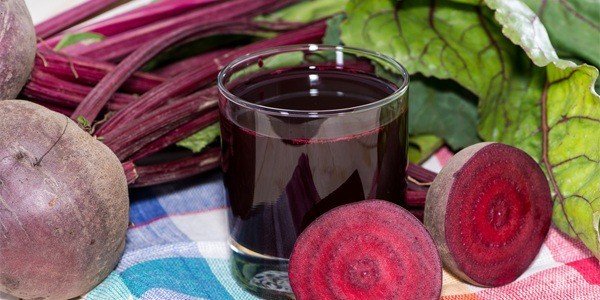Beetroot

Beetroot is a biennial herbaceous plant with a dark purple hue. Its leaves are small, oblong in shape and red-green in color. Its root is dark red with the appearance of a turnip.
For medicinal purposes, both the root and its tops and leaves are used. And the latter are used fresh. This simple and affordable vegetable for almost all people is unique.
The healing properties of the red beet have been known since the times of the Roman Empire, and it appeared in Bulgaria for the first time during the reign of Tsar Simeon I in the 10th century.
Even Hippocrates believed that beetroot has extremely strong healing properties.
Beetroot – useful properties
Nowadays, the health benefits of beetroot are undeniable and its medicinal properties have found wide application.
It preserves them not only raw, but also when consumed cooked. The roots of the red beet keep their beneficial properties for a long time.
In folk medicine, it is believed that beetroot cures over 100 diseases. Numerous recipes testify to the benefits of this vegetable.
Nutritional value
1 cup cooked, cut into pieces about 3 cm thick, beetroot without salt contains:
• 39 kilocalories;
• Sodium – 347 mg – 14% of the daily required dose;
• Carbohydrates – 8 grams;
• Vegetable fibers – 4 grams;
• Sugars – 1 gram;
• Proteins – 4 grams;
The root of the red beet is a source of organic acids and mono- and disaccharides and a wide range of vitamins:
• Vitamin PP;
• Vitamin C;
• Vitamin A;
• Vitamins of group B /B1, B2, B5, B6 and B9/;
In addition, the numerous beneficial properties of red beetroot are due to the various macronutrients contained in its root, such as:
• Potassium;
• Calcium;
• Phosphorus;
• Chlorine;
• Magnesium;
• Sulphur;
Beetroot leaves contain more iron than spinach and have a higher nutritional value than the root crop.
And the vitamin A contained in them helps strengthen the immune system and stimulates the formation of antibodies and white blood cells.
The beta-carotene in this vitamin has very well-studied antioxidant properties, thanks to which it neutralizes the action of free radicals and thus can prevent or at least reduce the risk of developing cardiovascular and malignant diseases.
This is to some extent also due to the fact that the root of the beetroot contains vitamin B9.
Thanks to its beneficial properties, this vegetable helps strengthen blood vessels and stabilize heart function.
Doctors recommend foods rich in vitamin A to people who are at risk of developing night blindness.
For this reason, it is desirable to consume red beets for the treatment and prevention of the following diseases:
• Atherosclerosis;
• Hypertension;
• Other cardiovascular pathologies;
The presence of folic acid in the root vegetable promotes the formation of new cells and therefore has a rejuvenating effect on the entire organism.
Regular consumption of red beets allows a person to strengthen their ability to memorize and perceive information, cure neuroses and insomnia and maintain excellent mental health.
The benefit of the root vegetable for people suffering from excess weight and fluid retention in the body is indisputable.
Beetroot perfectly cleanses the blood, kidneys, liver and lowers acidity in the body.
The high content of pectin substances in the root vegetable ensures its protective properties against heavy and radioactive metals.



